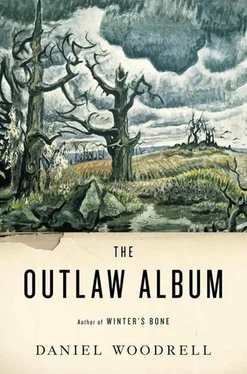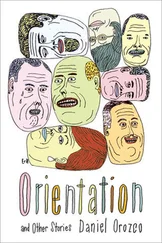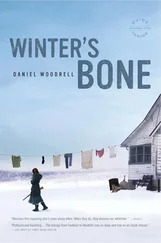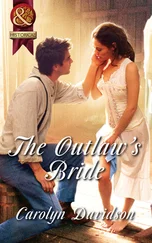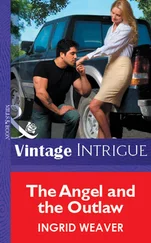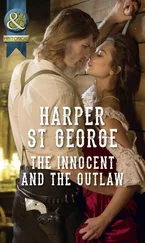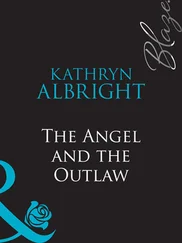I have died more times than one—perhaps three. This is not rare, but it may serve to stump the windiest of preachers, and a wandering eulogy is suited to those whose journey is uncertain in destination. I have no need for preachers, or faith in their selected destinations, but there must be a place, and I will not be misdirected.
I carved my own passport to that place; it will be as good as any.
Through the night I whittled, lessening, lessening, ever taking away from the oak. Reduction is the design I crave. My blade was a voice with a mind all its own, and it spoke to the wood in slashes, nicks, and great gouges. Flame from the kerosene lamp dodged about with the draft from the window, casting shadows where light had been, and light about my work. The pale wood chips gathered at my feet, a tribute to the diligence of my thick-veined hands and famous fingers.
When the cock had cried, then hushed before the grim, steel light of a rainy day, Jefferson opened my door. He wore high boots of the sort that are meant for polish and not for mud, and a suit of keen correctness, right down to the stiff boiled collar and the four-in-hand knot about his throat. His mustache was pruned so thin that it could be mistaken for a bonus lip.
“There are some things, Jacob,” he said, “that I will not have in this house.”
I felt no obligation to respond. Jefferson waddled across the room a bit, wishing I’d be provocative and force him into courage, but I was mild. He played with his watch chain, looping it through his fingers, waiting. There was some part of him that feared me, that was uncertain that I knew the boundaries of blood. It made us eerie together.
“Do not raise yourself into some sort of hero with my children,” Jefferson said. “Boys tend to admire war and lengthened necks and all. I know better and someday so shall they.”
“I fought,” I said, “for my comrades, and myself, but no more bravely than others.”
“Your bravery,” he said, nearly spitting it, “is a midnight legend.” Jefferson leaned toward me, blowing his chest expansive and crossing his arms, as if I could be frightened. “So bold and brave were you that you managed to kill your father—too bad he failed to see the safety in being your traitorous comrade.”
“I did not kill him.”
“You did not pull the trigger.”
“Exactly.”
“Alf Bowden pulled the trigger,” Jefferson said. “The one man you should have killed, you let go. Did you fail to realize that an American would seek satisfaction from your kin?”
Yes, I thought, gray heads had suffered while young ones went unnoosed. Alf Bowden was yielded to life while nine of his comrades were forfeited, but this did not make a friend of him.
“Shot him in the neck,” Jefferson said. “In front of your mother, he not even having English enough to know why he was killed. Small blessing.” Jefferson kicked about in the wood curls. “What a mess you have made.” I said nothing. “Your scarlet oaf of a comrade, Younger, ruined you for me, Jacob. He should never have visited.”
It was true; I lost something when Coleman Younger happened by. It was the year of the World’s Fair in St. Louis, and he was not long out of prison. I had not seen him since I returned from Old Mex in sixty-eight, but I had read about him often. He came to the door and knocked. When I answered it he said, “Jake Roedel, it is your old comrade, Coleman Younger.” I saw that he told the truth and said so, then welcomed him in. Prison had paled him, and he had become a pinkish man, a color I had never thought him capable of. I remembered him red. I offered him wine, but he was prepared with a flask of his own. We gathered at the table. Jefferson, a young man meeting history, sat at Coleman Younger’s elbow. We drank. The freeness of my own remembrances encouraged my guest to candor, and he spoke truly of our shared activities. Jefferson questioned him, and he answered directly, not noticing that my son was of the generation that cared less for America than they did the land that earlier generations had fled. There was now pride about the awkward consonants of foreign names, and narcissism in noodles called spaetzle, and in porkpie hats called homburgs. In Coleman Younger’s answers were accounts of the days of the Dutch boy, Alf Bowden, Creve Coeur Gap, and numberless others, for the war went on unblunted by my famous deed. Jefferson’s eyes fixed on me when the talk shifted to baseball and the World’s Fair, then he quietly left the house, easing the door closed behind himself. I knew then that he was lost to me.
“I could not turn him away,” I said. “You gained from him—a great bitterness to drive you.”
“My boys will not inherit such from me,” Jefferson said. “They will not find that I killed my own people in the service of traitors, or that I scalped possible cousins for sport.”
They littered Creve Coeur Gap. Their uniforms were valuable plunder, and their sourdough bodies began to rise with the sun. Little Arch Clements started it. They all watched me, and I knew it. They came off with a steady pull, a sound like that of a toothless grandma sucking on a cob of corn accompanying them. I saved mine for some time before flinging it to the river.
“I took no pleasure in that,” I said.
“I take no pleasure in you,” my son said.
He left me to myself.
I went back to work. The voice in my blade called out chop! chop! And my hand obeyed. Slash! Stab! The wood flew until only nubbins survived, and these I ground beneath my boots.
My hand had carved I knew not what, I had not restrained it, and what it wrought was bark chips and wood curls, sawdust and splinters.
Could this be? Could my passport be such?
The chips and curls would not mend. No other design would grow from them. I gathered a handful of the fragrant flakes and raised them to my face. My nostrils rested on the little pile, my tongue touched their salt. Nothing but wood chips—the large rendered small, and confusing.
I blew on them and they began to spray about, then I tossed them to the corners.
Oh, that voice in my blade had divined me well. I would seek no other monument.
It’s always a mess when they want to trumpet their love, say the words that make it all clear and everlasting, announce that a hard bond has formed between them that will never break, snap, melt, never, then want Dalrymple to come up with some retort that proves it back. He had to guess. He never did quite feel it, but gave a try at thinking his way into love, love with her, the one sitting close, imagining himself deep inside her spirit, toward the very bottom, where it’s fearful and wet and her secret hopes splash about. But the light goes out on that picture before he can find any feelings of his own down in all that black wet, and he’s got to say something.
Just tell me what you want to hear.
Well, that sure ain’t it.
How about trout?
I get carsick on that road—you know that.
I like how they let you catch them there first. Plus it’s a pretty spot.
You can’t say you love me, can you?
I think it all the time.
You just can’t say it.
Aw, Janet, I love, love, love you! Love, love, love.
That’s it, add insult, mockery. It’s a weak man can’t say love.
She’s put her finger right on the button about him, which is embarrassing. It’s so general, his problem, so everywhere among men, that he wants to add a wrinkle to it, some invented misery that makes it seem like he at least had a special sort of problem with love that was all his own. But what on earth would that be? That he was raised by foreigners who spoke a different language that had lots and lots of words but none of them were love? Or he can’t reach his emotions good since his tragic baby went down with the ship or was lost in the fire or whatever? But he doesn’t have any such excuse to give as an answer and instead opens another beer, looks out the window at the foggy hollows and damp dark bark, the vast forest of trees stripping down for the winter snooze.
Читать дальше
